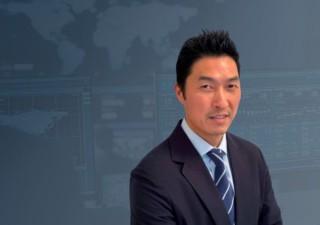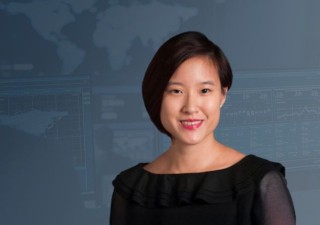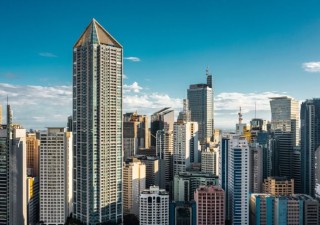Hong Kong startups featured in Business of IP Asia Forum
10 December 2021

Among the highlights of Business of IP Asia (BIP Asia) Forum held from December 2 to 3, 2021 was Hong Kong’s flourishing startup community – a sector which has grown significantly, thanks to the jurisdiction’s favorable business climate.
Hong Kong’s business landscape offers the advantage of proximity to a huge market that is Mainland China, rich opportunities for funding, excellent research capability and a strong framework for intellectual property protection.
“In Hong Kong, we are actually pushing and promoting entrepreneurship, startups very actively,” said Prof. Kam Fai Wong, associate dean (external affairs) of the Faculty of Engineering, professor in the Department of Systems Engineering and Engineering Management, director of Centre for Innovation and Technology.”
Wong served as moderator for the session titled “Global Tech Summit Part II - The Local Game Changers” held on December 3.
“Currently, we have something like 3,755 startups compared to what we had in 2017. We are up by 68 percent. In terms of employees in startups, now we have 13, 804 which is up by 118% since 2017. In terms of co-working space, now we have 124 and since 2017, we’re actually up by 17%,” he said.
On the panel were Alvin Cheung, co-founder and CEO of robotic technology firm HandyRehab; Vincent Fan, co-founder and chief strategy officer of smart logistics company Zeek; and Justin Chan, co-founder and CEO of bioelectronics startup Gense Technologies.
“It’s always a conscious choice whether Hong Kong is a good place for us to keep growing, to expand, or whether we should think about more places as well. There are several reasons why we stick to Hong Kong. The first one is the support that we have for research. The government funding that we received on certain research that we do has reached $20M so that in itself is always a big benefit,” said Chan. “And for a lot of IP-related and translational research to be done, we do need those support.”
Another thing they look at is the jurisdiction’s legal system. “There’s certainly a lot more conversation and a lot more channels that we can translate into IP and other legal issues that would inspire confidence,” Chan added.
Wong also mentioned that a lot of people have been saying that technology startups spend too much time on IP matters than on the business itself.
To this, Cheung pointed out that a sense of balance always exists in the way they run HandyRehab which also has business operations around Southeast Asia, China and Europe.
“I always tell my team ‘If our product can be easily copied by our competitors or some random factories in remote China or India, we should close our business.’ Because that means we are not the best person to do the product. And even if they can copy our product, they won’t be able to copy our brand, they won’t be able to copy our reputation, they won’t be able to copy our business model as well as the high-level services that we offer to our customers,” Cheung explained. “So I think we also always have to think of a balance in terms of technology development as well as business expansion, resources allocation, R&D.”
Asked if they were willing to go somewhere else where they can get twice as much as what they’re getting now, Cheung answered he will have to consider sustainability.
“It’s good that we have government support for a short period of time, maybe one year or nine months. But what’s after that?” he asked. “I think the most sustainable way for us as a company to grow and expand is that we have the customers buying. So honestly, even if they give us twice the funding that we have right now, I will think about, ‘will that be sustainable?’ Do we have enough customer base to support our operation? What happens when we run out of money in 9 months? Do we fire anyone? It doesn’t make sense.”
“I think it depends on what other assistance or other support that certain establishments or groups can offer to us,” said Fan whose company also has offices in Thailand, Vietnam, Malaysia and Singapore.
“Because startups need more than just money. We need talent, we need support on legal and professional services. I think this is what we also have to look at other than the money side or the investment side,” Fan added.
Wong ended the session by stating that Hong Kong does have a strong framework for IP.
“IP is not just IP itself but the backbone behind the legal system where we may not need to have a patent but know-hows have to be protected and the commercial operation itself,” he said. “So, I think we all agree that Hong Kong has a very good structure for that one.”
BIP Asia Forum is an annual event organized by the HKSAR Government, Hong Kong Trade Development Council and Hong Kong Design Centre. It gathers IP professionals, entrepreneurs, manufacturers, brand owners, technology licensing agents, academicians and other stakeholders in the IP arena for discussions on the latest IP trends and business opportunities.
Espie Angelica A. de Leon






